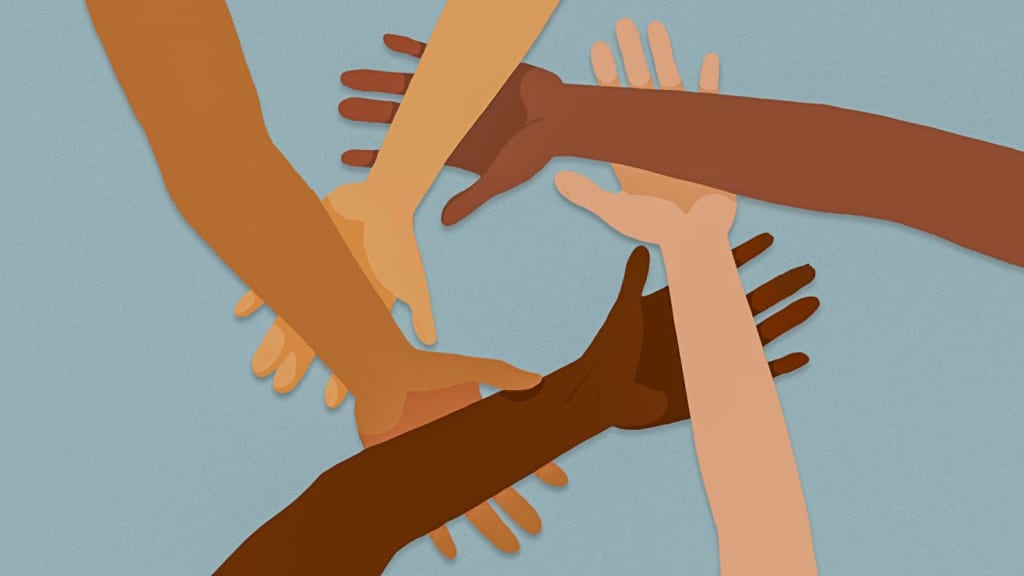Navigating Humanity's Complexity
Understanding the Intersectional Framework

In the intricate web of human existence, the Intersectional Framework emerges as a powerful lens through which to examine the multifaceted nature of identity and social experiences. Rooted in the recognition that individuals are shaped by intersecting social categories such as race, gender, class, sexuality, and ability, this framework illuminates the complexities of human diversity and inequality. In this exploration, we delve into the depths of the Intersectional Framework, unraveling its significance and implications for understanding the human condition.
Deconstructing Identity:
Identity is not a monolithic construct but rather a mosaic of intersecting and overlapping social categories. Each individual occupies multiple social positions, which intersect to shape their unique experiences and perspectives. The Intersectional Framework highlights the interplay between various axes of identity, revealing how systems of power and privilege intersect to produce complex forms of inequality and marginalization. By deconstructing identity in this manner, we gain insight into the nuanced ways in which individuals navigate the social world.
Acknowledging Privilege and Oppression:
Central to the Intersectional Framework is the recognition of privilege and oppression as interconnected and interlocking systems. Privilege refers to the advantages conferred upon individuals who occupy dominant social positions, while oppression refers to the systematic disadvantage experienced by those marginalized within society. These systems of privilege and oppression intersect along multiple axes, resulting in unique configurations of advantage and disadvantage for different groups. By acknowledging these dynamics, we can work towards dismantling systems of inequality and creating a more just and equitable society.
Centering Marginalized Voices:
One of the key tenets of the Intersectional Framework is the importance of centering marginalized voices and experiences. Traditional approaches to social analysis have often privileged the perspectives of dominant groups, leading to the erasure and invisibility of marginalized communities. The Intersectional Framework seeks to rectify this imbalance by amplifying the voices of those at the intersections of multiple forms of oppression. By centering these voices, we gain a more comprehensive understanding of the complexities of human experience and the systems of power that shape it.
Challenging Binary Thinking:
The Intersectional Framework challenges binary thinking by highlighting the fluidity and complexity of identity. Rather than viewing social categories as rigid and mutually exclusive, this framework recognizes the intersectional nature of identity, where individuals can simultaneously occupy multiple social positions. By challenging binary thinking, we open up space for a more nuanced and inclusive understanding of human diversity, one that embraces the complexities of lived experience.
Implications for Social Change:
The Intersectional Framework has profound implications for social change and activism. By centering the experiences of marginalized communities and acknowledging the intersecting systems of privilege and oppression, we can work towards creating more inclusive and equitable systems. This may involve advocating for policies that address the unique needs of marginalized groups, challenging discriminatory practices, and amplifying the voices of those who have been historically silenced. Ultimately, the Intersectional Framework provides a powerful tool for advancing social justice and building a more inclusive society for all.
Conclusion:
In conclusion, the Intersectional Framework offers a powerful lens through which to understand the complexities of human identity and social experiences. By deconstructing identity, acknowledging privilege and oppression, centering marginalized voices, challenging binary thinking, and working towards social change, we can create a more just and equitable society for all.
However, it is essential to recognize that implementing the principles of the Intersectional Framework requires ongoing commitment and action. It is not enough to simply understand the theoretical underpinnings of intersectionality; we must actively strive to dismantle systems of inequality and create inclusive spaces where everyone can thrive.
As we navigate the complexities of human diversity, let us embrace the intersectional nature of identity and work towards building a world where everyone is valued, respected, and empowered to live authentically. By centering marginalized voices, challenging structural barriers, and fostering empathy and understanding, we can pave the way for a more equitable future for generations to come.
About the Creator
Mohamed Ali
Mohamed Ali is a passionate writer and researcher with a keen interest in exploring the complexities of human behavior and society through the lens of sociology. With a background in sociology and psychology.






Comments
There are no comments for this story
Be the first to respond and start the conversation.